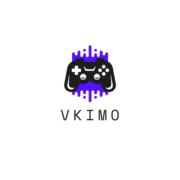As a veteran esports analyst, I’ve witnessed the explosive growth of professional gaming and the increasing demand for skilled esports coaches. The role has evolved far beyond simply understanding game mechanics – it’s now a sophisticated career path that combines strategic thinking, player development and team management. I’ve seen countless passionate gamers wondering how to transform their love for competitive gaming into a rewarding coaching career. Whether you’re aiming to guide amateur teams or aspiring to coach at the professional level, the esports coaching industry offers diverse opportunities. From League of Legends and Dota 2 to Valorant and Counter-Strike, there’s a growing need for qualified coaches who can help players and teams reach their full potential.
- An esports coach guides competitive gaming teams through strategic training, mental conditioning, and gameplay analysis, with salaries ranging from $35,000 to $175,000 annually.
- Essential qualifications include expert-level game knowledge, 3+ years of competitive experience, strong analytical abilities, and proficiency with performance tracking tools.
- Career paths include professional team coaching, academy/amateur team coaching, and educational coaching at universities and high schools.
- Breaking into esports coaching requires achieving high competitive ranks, obtaining relevant certifications (like ECCP), and developing a strong portfolio of coaching experience.
- The esports coaching industry shows a 22% annual growth rate, with increasing opportunities across professional organizations, educational institutions, and online coaching platforms.
- Job opportunities can be found through major gaming organizations’ career pages, educational institutions’ job boards, and specialized esports job platforms like Hitmarker.net and ESports Careers.
Esports Coach Jobs
An esports coach guides competitive gaming teams to peak performance through strategic training, mental conditioning, and gameplay analysis. I’ve observed that these professionals function similarly to traditional sports coaches but specialize in specific video game titles like League of Legends, Valorant or Counter-Strike.
Key Responsibilities and Duties
- Analyze team performance data to identify strengths, weaknesses, opportunities & threats (SWOT)
- Develop customized practice schedules based on tournament calendars
- Review match replays to improve team strategies & individual mechanics
- Create game-specific playbooks with tactics for different scenarios
- Monitor player health metrics including stress levels & reaction times
- Coordinate with team analysts to study opponent patterns & tendencies
- Lead pre-game preparation sessions & post-game review meetings
- Manage interpersonal dynamics between team members during practices
- Schedule scrimmages against other professional teams
- Expert-level knowledge in specific esports titles
- 3+ years competitive gaming experience at semi-professional level
- Strong analytical abilities for gameplay assessment & statistical analysis
- Clear communication skills for strategy explanation & feedback delivery
- Problem-solving capabilities for real-time match adjustments
- Leadership experience in team environments
- Basic psychology understanding for player mental conditioning
- Proficiency with replay analysis software & performance tracking tools
- Working knowledge of streaming platforms & recording equipment
- Bilingual communication skills (game-specific region dependent)
| Skill Category | Required Proficiency Level |
|---|---|
| Game Knowledge | Expert (Top 1%) |
| Leadership | 3+ years experience |
| Analysis Tools | Intermediate to Advanced |
| Communication | Professional Level |
| Strategic Planning | Advanced |
Career Paths in Esports Coaching
Esports coaching offers diverse career trajectories across multiple competitive levels. I’ve identified three distinct pathways that present unique opportunities for aspiring coaches in the professional gaming ecosystem.
Professional Team Coach
Professional team coaches lead elite esports organizations competing in major leagues like the LCS, ESL Pro League or Overwatch League. The position commands annual salaries ranging from $50,000 to $150,000 based on experience level. Key responsibilities include:
- Developing championship-caliber strategies for tier-1 tournaments
- Managing rosters of contracted professional players
- Coordinating with analysts, sports psychologists and team managers
- Creating detailed performance improvement plans using data analytics
- Representing the organization in media appearances and sponsor events
Academy and Amateur Team Coach
Academy coaching serves as an entry point into professional esports, focusing on developing upcoming talent. The role typically offers annual compensation between $30,000 to $60,000 and involves:
- Training aspiring pro players aged 16-21 in competitive fundamentals
- Organizing scrimmage schedules with other academy teams
- Implementing training programs from the main roster coaching staff
- Scouting amateur tournaments for recruitment opportunities
- Preparing detailed player progress reports for organization management
- Managing varsity esports programs at schools and universities
- Balancing practice schedules with academic requirements
- Organizing collegiate tournament participation
- Maintaining compliance with educational athletics regulations
- Developing recruitment pipelines with high school esports programs
- Coordinating with academic advisors on student-athlete performance
How to Become an Esports Coach
Breaking into esports coaching requires a strategic combination of gaming expertise, educational credentials, and professional development. Here’s a structured path to establish yourself as an esports coach.
Building Your Gaming Experience
I’ve identified these essential steps to develop your gaming foundation:
- Achieve high competitive ranks in your chosen game (e.g., Diamond in League of Legends, Global Elite in CS:GO)
- Accumulate 3,000+ hours of gameplay in your primary esports title
- Participate in 25+ amateur tournaments to understand competitive environments
- Create detailed match analysis documents for 50+ professional games
- Join or create an amateur team to gain hands-on leadership experience
- Stream coaching sessions to build a portfolio of teaching examples
- Master 3-4 roles or positions within your game to understand team dynamics
- Complete the Esports Coaching Certification Program (ECCP) through NAECAD
- Obtain a Sports Psychology Certification from ESports Academy
- Earn a Bachelor’s degree in Sports Management or Computer Science
- Take specialized courses in:
- Team Management
- Performance Analytics
- Strategic Planning
- Sports Psychology
- Complete game-specific coaching certifications:
- Riot Games’ League of Legends Coaching Certification
- ESL Academy Coaching Program
- FACEIT Coach Certification
| Certification Program | Duration | Cost (USD) |
|---|---|---|
| ECCP | 6 months | $1,200 |
| ESports Academy | 3 months | $800 |
| Game-Specific Certs | 1-2 months | $300-500 |
Salary and Job Outlook
Esports coaching offers competitive compensation packages that vary based on experience level, game title, and organization tier. The industry demonstrates strong growth indicators with increasing opportunities across different competitive gaming sectors.
Compensation Range
The average base salary for esports coaches ranges from $35,000 to $175,000 annually, varying by position and experience level. Here’s a detailed breakdown of compensation across different coaching roles:
| Position Level | Annual Base Salary | Additional Benefits |
|---|---|---|
| Entry-Level Coach | $35,000 – $45,000 | Performance bonuses, healthcare |
| Mid-Level Coach | $45,000 – $85,000 | Prize pool percentages, travel allowance |
| Senior Coach | $85,000 – $175,000 | Equity options, comprehensive benefits |
Top-tier organizations in major leagues like LCS or OWL offer additional performance incentives including:
- Tournament winnings percentage (5-15%)
- Streaming revenue shares
- Brand endorsement opportunities
- Housing allowances
Industry Growth Potential
The esports coaching market exhibits a 22% annual growth rate, with projections indicating continued expansion through 2027. Key growth indicators include:
- 35% increase in collegiate esports programs creating new coaching positions
- 150+ professional teams actively recruiting coaching staff
- 400+ amateur leagues establishing coaching infrastructure
- 25% rise in esports-focused educational institutions
- Professional gaming organizations
- University athletic departments
- High school esports programs
- Gaming academies
- Online coaching platforms
Where to Find Esports Coaching Jobs
The esports coaching job market features diverse opportunities across multiple platforms. I’ve identified three primary channels for discovering esports coaching positions, each offering unique advantages for different experience levels.
Major Gaming Organizations
Leading esports organizations post coaching positions on their corporate career pages, including Team SoloMid, Cloud9, Team Liquid, G2 Esports, and Fnatic. These organizations typically list openings for head coaches ($85,000-$175,000), assistant coaches ($45,000-$85,000), and analyst positions ($35,000-$55,000). The application process involves submitting game-specific achievements, coaching experience documentation, and professional references through their dedicated recruitment portals.
Educational Institutions
Colleges and universities advertise esports coaching positions through platforms like HigherEdJobs, NCAA Market, and NACE (National Association of Collegiate Esports). Educational institutions offer coaching roles with annual salaries ranging from $40,000 to $75,000, plus benefits packages. Key institutions hiring esports coaches include:
- Full Sail University
- University of California, Irvine
- Robert Morris University
- Miami University Ohio
- Harrisburg University
Online Job Platforms
Specialized esports job boards and professional networking sites feature coaching opportunities at various levels:
- Hitmarker.net: Posts 150+ monthly esports coaching listings
- LinkedIn: Features 500+ esports organizations’ job postings
- ESports Careers: Lists entry-level to senior coaching positions
- Indeed: Aggregates coaching jobs from multiple sources
- WorkInGaming: Focuses on gaming industry positions, including coaching roles
The esports coaching landscape offers incredible opportunities for those ready to blend their gaming passion with professional development. I’ve seen firsthand how this dynamic field continues to evolve with competitive salaries diverse career paths and strong growth potential. Whether you’re aiming for a position with a professional team or looking to develop talent at the collegiate level there’s never been a better time to pursue an esports coaching career. With the right mix of skills certifications and dedication you’ll be well-positioned to join this thriving industry. Remember that success in esports coaching requires continuous learning and adaptation. I encourage you to take that first step today and start building your path toward this rewarding career.

